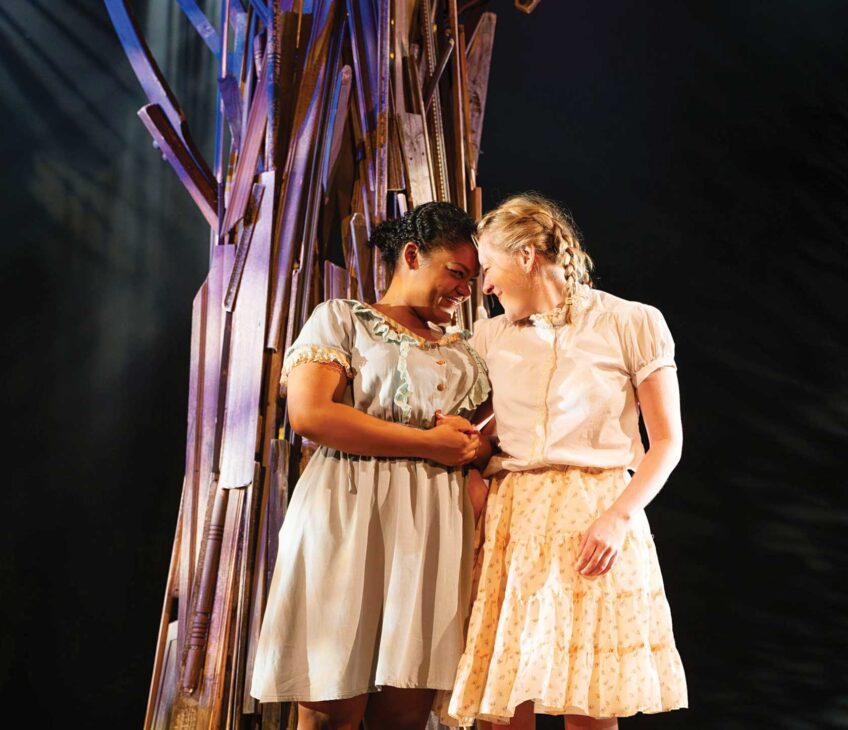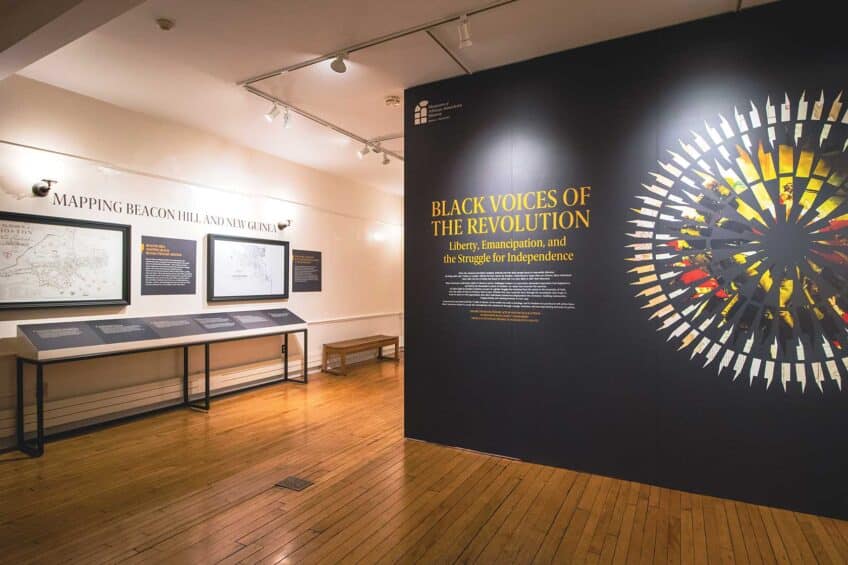
In “Next to Normal” at Central Square Theater, a picture-perfect Black family gets ready for their day. Mom makes lunch, dad prepares for his workday as an architect, and two clever teens assemble their school supplies. But the picture, and the audience’s understanding of it, begins to crack as Mom’s bipolar disorder seeps into their daily routines and emotions.
Co-produced by Central Square Theater and The Front Porch Arts Collective and running May 30-June 23, “Next to Normal” is a pop-rock musical directed by Pascale Florestal. The show explores how the mother Diana (played by Sheree Marcelle) experiences her disorder, how it impacts the family as a whole and how the medical establishment interacts with her as a Black woman.
“I think it’s really important, in particular, to be telling this specific story from the perspective of a BIPOC family,” says Marcelle. “Because it really adds this element of not only how much care is Diana getting within her family system and within herself, but also outside of that, how is the actual health care system contributing to what she’s enduring?”
Unlike traditional musicals, where a song punctuates a scene, Marcelle says, music is a constant throughout the production, often mirroring Diana’s complicated emotions. Songs are also utilized for dialogue rather than just exposition. The pop-rock score makes the musical feel contemporary and relatable. The show features music by Tom Kitt and book and lyrics by Brian Yorkey. The musical debuted in 2008 and hit Broadway in 2009 to positive critical reception.
“I have loved this show since it premiered on Broadway,” Florestal says, “and I am so looking forward to exploring how our production dismantles the idea of normal.”
Navigating mental health challenges is not a rare experience. The National Institute of Health reported in 2021 that 57.8 million adults in the United States are living with mental illness. That number represents 22.8% of all adults in the country. Although the severity and conditions vary, the impact is widespread.
Marcelle hopes the production will encourage audience members to look beyond a seemingly perfect exterior and extend empathy and understanding to their neighbors.
“I hope that the audience can see that mental health struggles are normal,” says Marcelle. “They’re not something to be afraid of. They’re not something that needs to be fought. But it needs to be something that is accepted, so that everyone can move toward a place of healing.”







